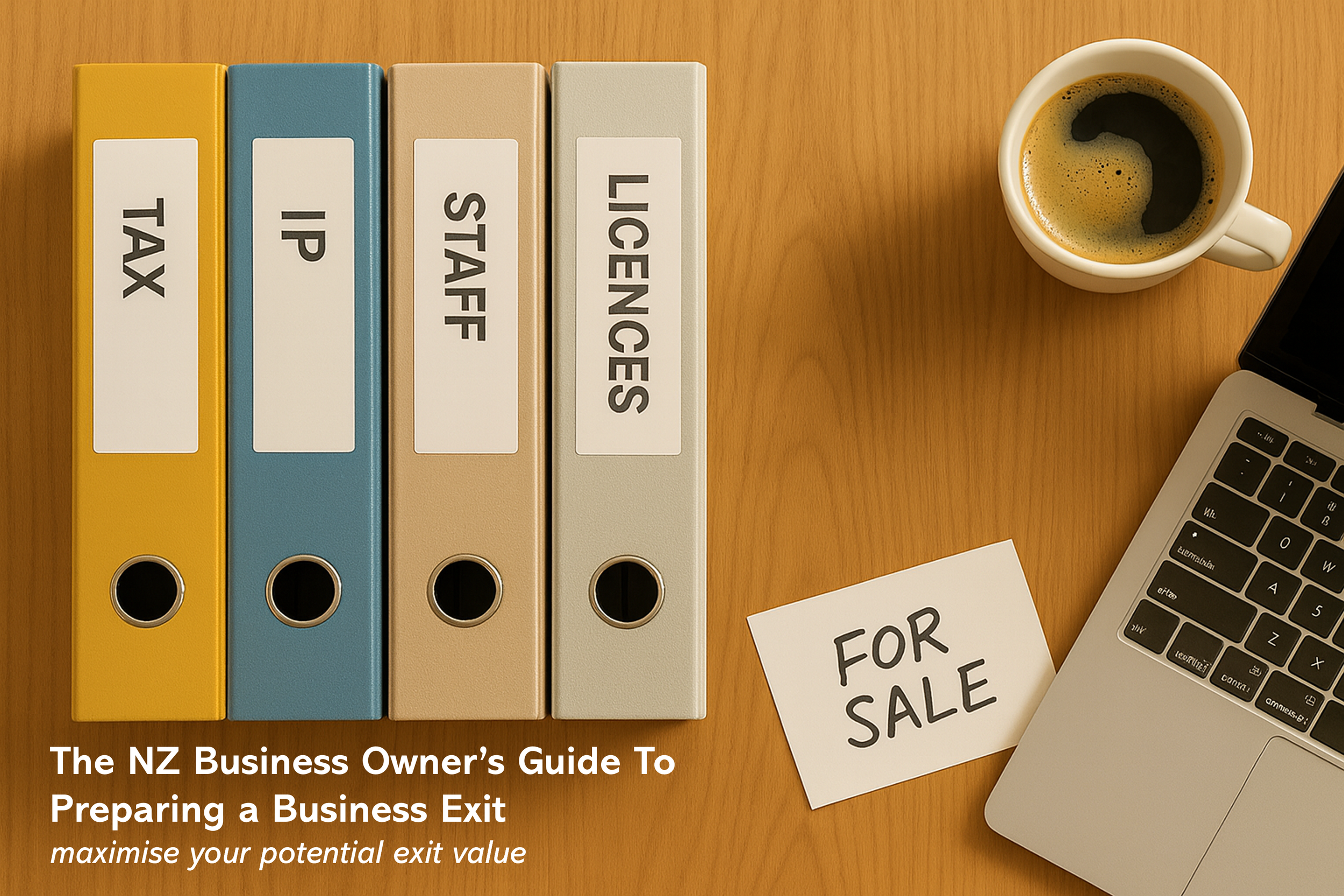3. Build Your Dream Advisory Team
Accountants, lawyers and brokers assembling the Avengers of your sale
Problem Statement
Many owners reach exit conversations with a decent business although a thin support crew. They have an accountant who mostly talks about tax, a lawyer who appears when documents need signing plus maybe a broker they met at a breakfast.
Each professional works hard although no one holds the whole picture with the owner. When the sale heats up advice arrives in fragments, meetings feel disjointed, decisions drag and the owner ends up carrying most of the weight.
What An Owner Might Say
“I feel like I am running this sale on my own while everyone else answers small parts of the puzzle. I want people who have my back, not just three separate inboxes.”
“I know I should get my accountant, lawyer and broker talking together although I worry it will cost a fortune and still leave me none the wiser.”
Why It Happens
Business ownership trains you to be self-reliant. You are used to making the call, fixing the problem and keeping things moving. In that mode it is tempting to treat advisers like emergency services. You call when something is on fire then send them away once the flames are out. That habit may work for short term issues. It does not work when you are navigating one of the biggest financial and emotional decisions of your life.
Many owners have also had mixed experiences with professionals. They have felt rushed, patronised or over billed. Rather than risk more of the same you keep the advisory circle small. You ask for the minimum input needed to get a task done and avoid inviting broader involvement.
There is rarely a simple picture of what a strong advisory team looks like. You hear that you need an accountant, a lawyer plus maybe a broker. Less is said about the value of someone who can guide exit readiness or a personal financial planner who can help you design life after the sale. Without a clear template you default to whoever is already on speed dial even when the mix is lopsided.
What To Do About It
Start by defining roles before you think about names. List the types of thinking you will need for your exit. Useful roles include financial clarity, tax and structure, legal risk, market positioning, deal negotiation plus personal financial planning. Beside each one write the outcome you want from that role so you stay focussed on value rather than status.
Next, map your current advisers against those roles. Which boxes do they cover well and where are the gaps. You might realise your accountant is excellent on tax although light on commercial strategy, or that your lawyer is strong on contracts yet rarely talks about deal tactics. This does not mean you must replace trusted people. It simply shows where you need complementary strengths.
When you meet potential new advisers pay attention to curiosity. Do they ask about your values, your whānau, your stress points and your hopes for life after sale. Or do they rush to pitch a standard process. They should be able to explain complex ideas in clear language without making you feel small or rushed.
Once you have chosen your core team bring them together early. Share your exit goals, your time window, your concerns and your non negotiables. Invite each person to explain how they see their role in helping you reach that picture. Watching how they interact will tell you who listens, who collaborates and who tries to dominate the room.
How To Keep The Momentum
A dream team only stays useful if you give it rhythm. Set a simple pattern for joint check ins, maybe once or twice a year in early planning then more often as you near the market. Keep the agenda short. What has progressed. What decisions are coming up. Where do you need options on the table instead of a single recommendation.
Be clear about how decisions will be made. You are the person who lives with the outcome so their job is to offer perspectives, not pressure. Encourage honest disagreement in front of you so trade offs are visible. If your accountant and your lawyer see a risk differently, ask them to talk it through while you listen.
Remember that you also need emotional steadiness. Exit planning can stir up identity questions, financial fear and concern for staff and whānau. A strong advisory team respects that human layer. They respond without judgement and help you keep moving even when the choice feels heavy.
Golden Nugget
“Choose advisers who leave you clearer and braver after a meeting. Their job is to share the load, not to become another weight on your shoulders.”
How RegenerationHQ can help
RegenerationHQ often acts as the steady centre of an owner’s advisory circle. We understand how exit affects cashflow, culture, confidence and the owner’s sense of self. Our role is to help you design the advisory mix you need, choose people who genuinely fit and create a working rhythm that keeps everyone aligned with your goals.
We translate accounting language, legal nuance and broker enthusiasm into simple options you can weigh with confidence. We will also bring conversations back to your definition of success whenever the noise of the deal threatens to drown it out.
Most importantly we stay alongside you across the journey. We help you review progress, adjust the team if needed and stay honest about how the exit timeline is affecting your energy. With the right people at your side, guided by a steady process, you can walk into sale discussions feeling supported, informed and ready for the next chapter of your life.
If you want a steady guide beside you while you get ready for one of the biggest decisions of your working life, RegenerationHQ is ready to help you walk that road with clarity and confidence.

